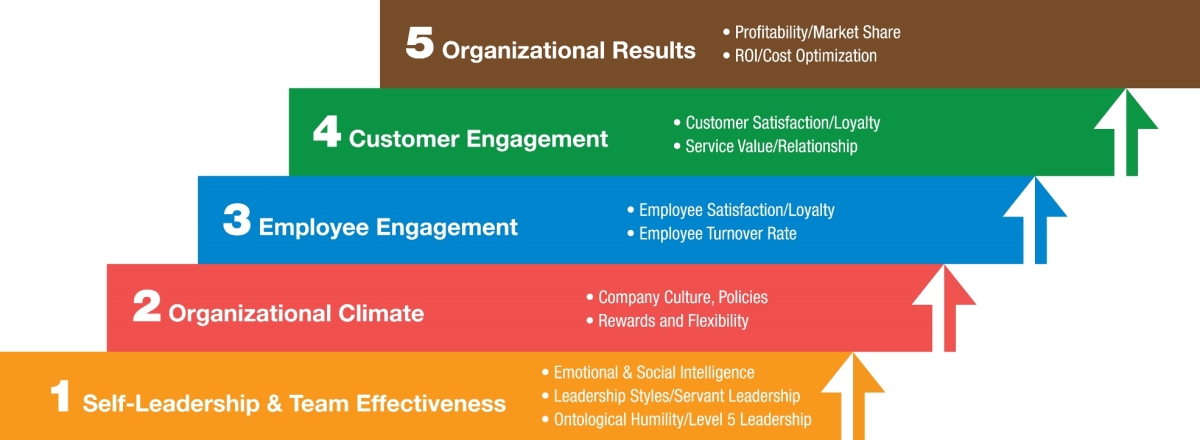
Making results-based leadership work in Singapore
By Prof Sattar BawanyIn Singapore's high demand for productivity, there's always a search for a good leader. What makes a good leader? Here are some realities leaders must accept.
“Good leaders make people feel that they're at the very heart of things, not at the periphery. Everyone feels that he or she makes a difference to the success of the organization. When that happens people feel centered and that gives their work meaning.
- Warren G. Bennis, an American scholar, and Author of ‘On Becoming a Leader’ and widely regarded as a pioneer of the contemporary field of Leadership studies.
In essence, the heart of the leadership challenge that confronts today’s leaders is learning how to lead in situations of ever greater volatility and uncertainty in a globalised business environment, allied with the needs to deal with scale, complexity and new organisational forms that often break with the traditional organisational models and structures within which many have learned their ‘leadership trade’.
So the basic assumption that past experience is the key for future leadership success is more open to scrutiny than ever.
Leadership is all about the ability to have impact and influence on your followers so as to engage them towards ACHIEVING RESULTS of your organisation through both Ontological Humility and Servant Leadership blended with elements of Socialised Power/Social Intelligence.
Leadership is an art and a science. It is an art because it continually evolves, changes form, and requires creativity. It is a science because there are certain essential principles and techniques required.
A good leader knows when it is time to change shape because they are highly attentive to those around them.
Coming from a position of strength, a great leader takes risks by freeing up the creative genius in their followers to build their capability and multiply the talents of the organization.
This leads to community and greatness. By powerfully communicating a vision that animates, motivates, and inspires followers, a great leader is able to transform his or her organization.
The New Realities: Results-Based Leadership
We are operating in a hypercompetitive business environment. The world moves faster today when compared to 10 years ago.
Companies feel the pressure to decrease time to market and improve the quality of products while delivering on ever-changing customer expectations to maintain competitive posture – that is, be adaptive and nimble. Driving results is difficult even for companies who have the benefit of dedicated and knowledgeable employees and business leaders to leverage.
In the early years leadership studies, the so-called “trait theory” took the view that there is a set of traits that separates the leader from the pack.
Traits purported to be characteristic of leaders included intelligence, a drive to dominate others, being extroverted and having charisma. Today, people often point to the importance of emotional intelligence in achieving leadership effectiveness.
There is growing evidence that the range of abilities that constitute what is now commonly known as emotional intelligence plays a key role in determining success in life and in the workplace.
Recent research has uncovered links between specific elements of emotional intelligence and specific behaviors associated with leadership effectiveness and ineffectiveness.
Flexible leadership, however, involves being able to adapt your leadership style according to the situation and the state of the team - e.g.: taking charge when a team is forming but playing the role of coach when a team is managing itself well.
This is critical in developing and sustaining employee engagement. There are six distinct leadership styles, each one springing from different components of emotional intelligence.
Organizations need leaders to visualize the future, motivate and inspire employees, and adapt to changing needs. On-going research indicates that, with the right leadership development support including executive coaching, those with leadership potential can be developed into outstanding leaders.
Emotional Intelligence competencies are perhaps the most challenging for leaders to develop effectively and yet it is the one that often has the most impact. As emotionally intelligent leaders rise through the ranks of an organization, their profile becomes more visible to employees and their increased power can have greater impact towards achieving the organisational results (see Figure 1).
Conclusion: Connecting leadership and communication
A leader must be able to communicate effectively. When CEOs and other senior executives in all industries and countries are asked to list the most important skills a manager must possess, the answer consistently includes good communication skills.
Effective communication is an essential element of leadership. Leaders are communication champions who inspire and unite people around a common sense of purpose and identity.
They lead strategic conversations that get people talking across boundaries about the vision, key strategic themes, and the values that can help the group or organization achieve desired outcomes.
Leader communication is purpose-directed, and an important element is persuading others to act in ways that achieve goals and accomplish vision. Four steps for practicing the art of persuasion are to establish credibility, build goals on common ground, make your position compelling, and connect with others on an emotional level.
As an effective leader, communication is the primary and most important tool. There is no substitute for good judgement, and change leaders need to be reflective and thoughtful about the ways they communicate.
There is also no substitute for ‘Active Listening’, and receiving feedback from the staff and colleagues about how the leader communicates.

























 Advertise
Advertise






